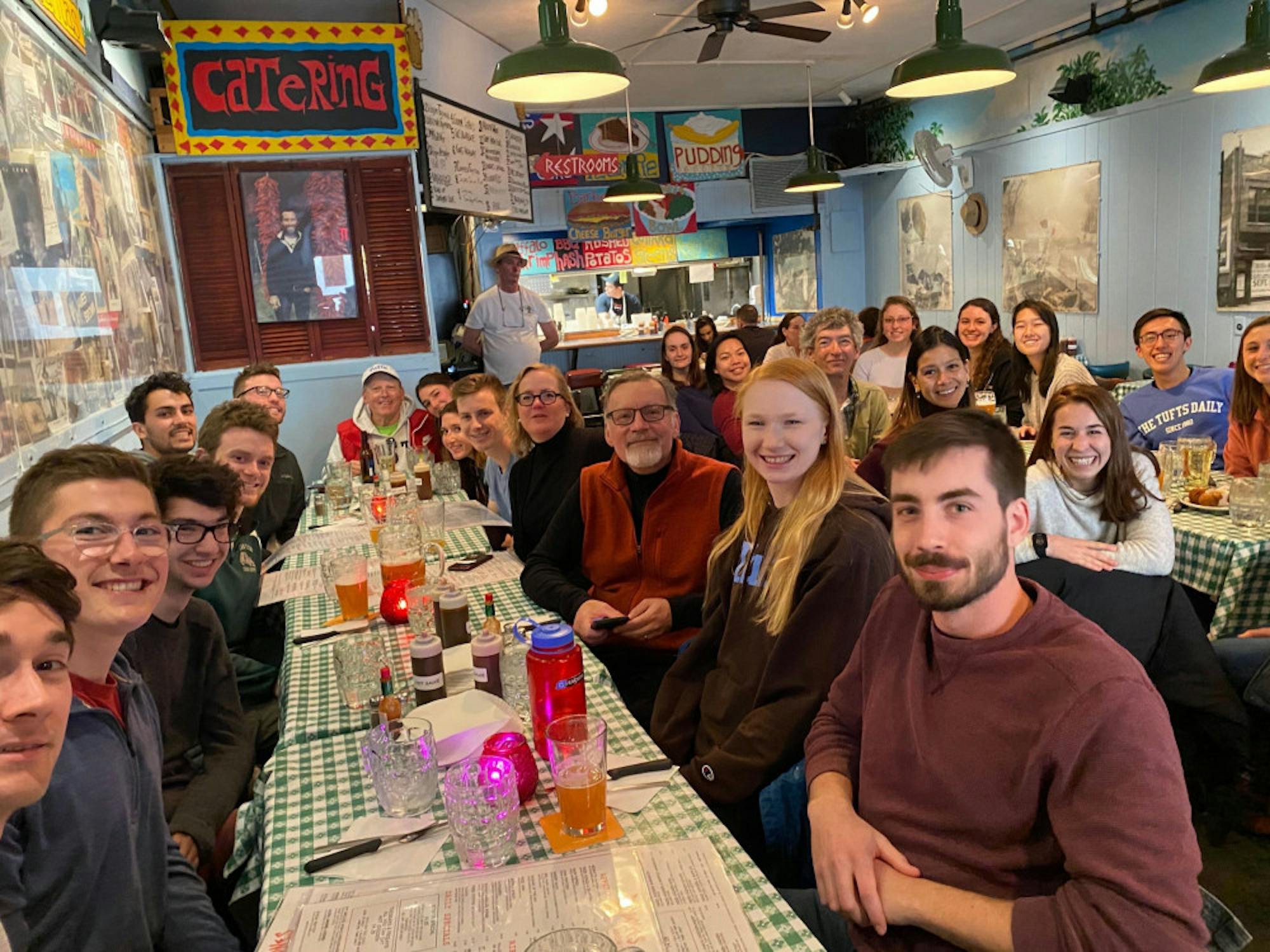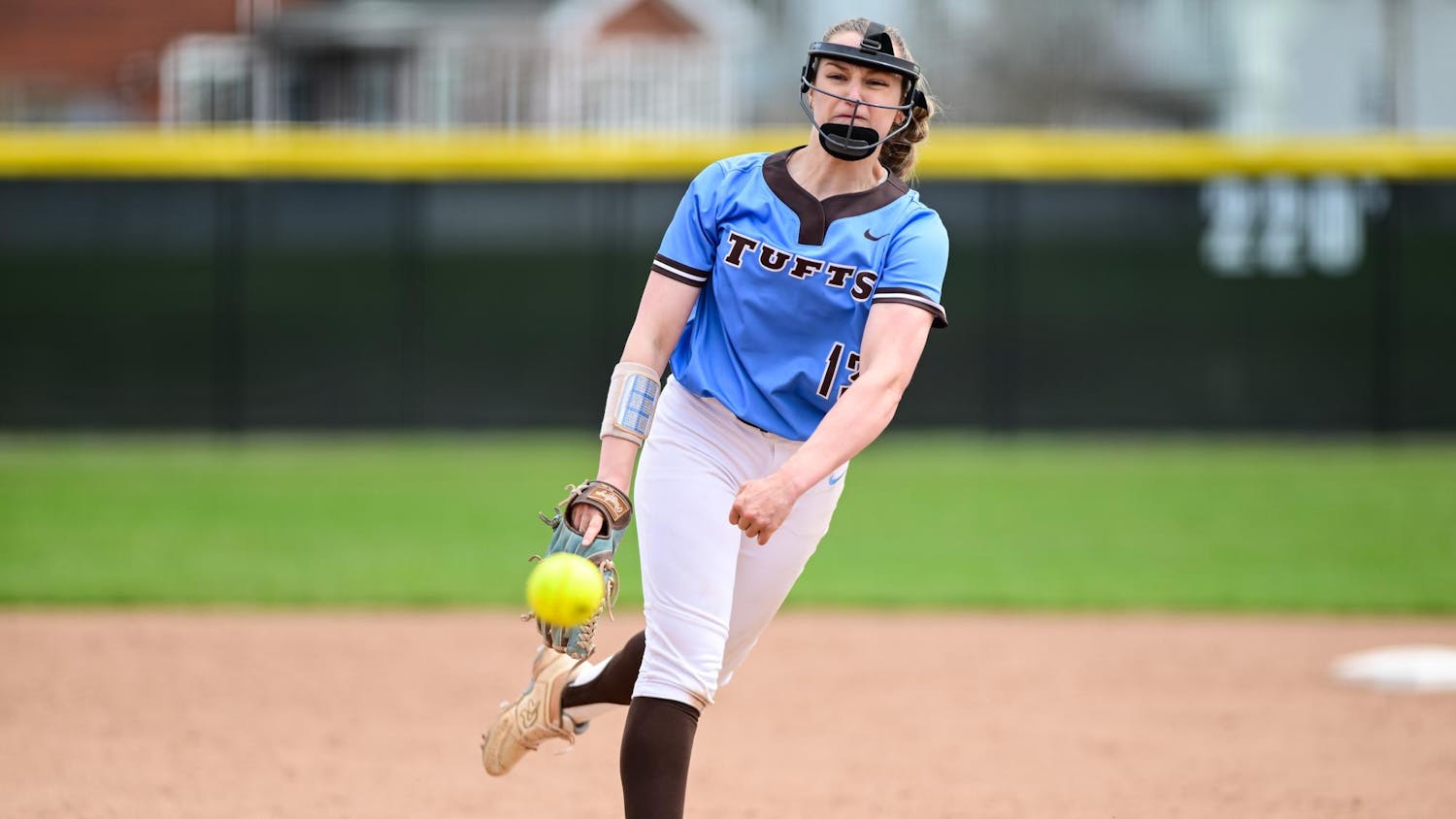As the sun rises on a brisk New England morning, the streets of Packard Avenue and Professors Row are sound asleep. The streets are hallowed, empty and serene. The only audible sound is that of sneakers of the Tufts Marathon Team hitting the pavement.
While the rest of us were fast asleep on Sunday mornings, there was a special herd of Jumbos who were not only awake, but also pushing themselves to the extreme of physical endurance. The Tufts Marathon Team, a club sports organization, used to meet three mornings a week to run. This is a community of Jumbos whose love for running pushes them forward with every step.
The club is comprised of undergraduate students, graduate students, Ph.D. candidates, professors and other faculty members — even former University President Lawrence Bacow attended practices. However, what distinguishes this club is its training for the local Boston Marathon. This unique opportunity allows 50 members of the Tufts community to take part in this special event each year. Members do not need to qualify for the race, which is often a process that is incredibly difficult because of the intense competition surrounding the race.
“It’s a once and a lifetime opportunity,” junior AJ Pandina said.
However, it isn’t the Boston Marathon that brings this extraordinary group of athletes together: it is the magnetic connection among the team members which enables them to pull together in the mornings, with each mile bringing them closer together.
“The best thing about running is that it’s a really social thing. It’s the people that make you want to come back, even though the practices are so early,” sophomore Rayn Schnell said.
Director of the Tufts University President’s Marathon Challenge Don Megerle, more commonly known as coach Don, remains the centerpiece of this community. He is one of the reasons so many find their motivation in running. Megerle is known as a man full of exuberance, life and selflessness, with an infectious spirit felt by every member of the team.
“Coach Don is absolutely the best. He is in my corner 100%. He believes in me,” sophomore Sam Schrage said.
“There is something about running alongside someone, enduring that pain together. You may not know the person next to you, but you feel that connection that we’re in this together,” Strich said.
The Tufts Marathon Team is a testament to the power of shared passions, endurance, pain and satisfaction. There is nothing like it, and it is clear that this is a group encapsulating the most extraordinary feats of human emotion. Of course, with the rest of the world, the Tufts Marathon Team came to a halt in March due to COVID-19. The community was further apart, the intricacies of running as a group were lost and numerous events were cancelled. Members who did not receive one of the 50 bibs for the Boston Marathon were set to participate in the Providence half marathon which was also cancelled. The cancellation of both races was devastating; however, knowing the seniors had lost the event they had worked toward for years was an even tougher fact to deal with.
“It’s a four-year thing that you work for. That last practice was incredibly tough to go to,” sophomore Elli Sol Strich said.
Much like the rest of us, the team’s running world was confined to isolation, with marathons done virtually. Despite the challenges, members of the team found many ways to keep pursuing their passions. Through coach Don’s exuberant emails and use of the app Strava, a social media platform for runners, members of the Tufts Marathon Team found motivation to not let go of their passion for running.
For Schnell, it was discomforting not having a goal to work towards, but the friendly competition helped her train and run harder. Their reliance on community was evident and served as a bedrock throughout the challenging times.
However, the team's philosophy of training has helped them cope with the COVID-19 pandemic.
Perhaps the most personal perspective came from Strich and Schnell who emphasized how much sacrifice is required when running a marathon, as there is nothing glamorous about running long distance.
“Running and life doesn’t always feel good,” Rayn said, “but knowing you’re working towards the right goal makes it all worth it.”
It is perhaps these lessons that we must take as all of us, whether it be students or faculty, prepare for the next year of this reality. The team acknowledged that the run itself is never easy, that the strain that you put on your body is immense and at times unbearable. Yet, it was clear that there was one feeling they all shared: the satisfaction of finishing a race is unbeatable.






